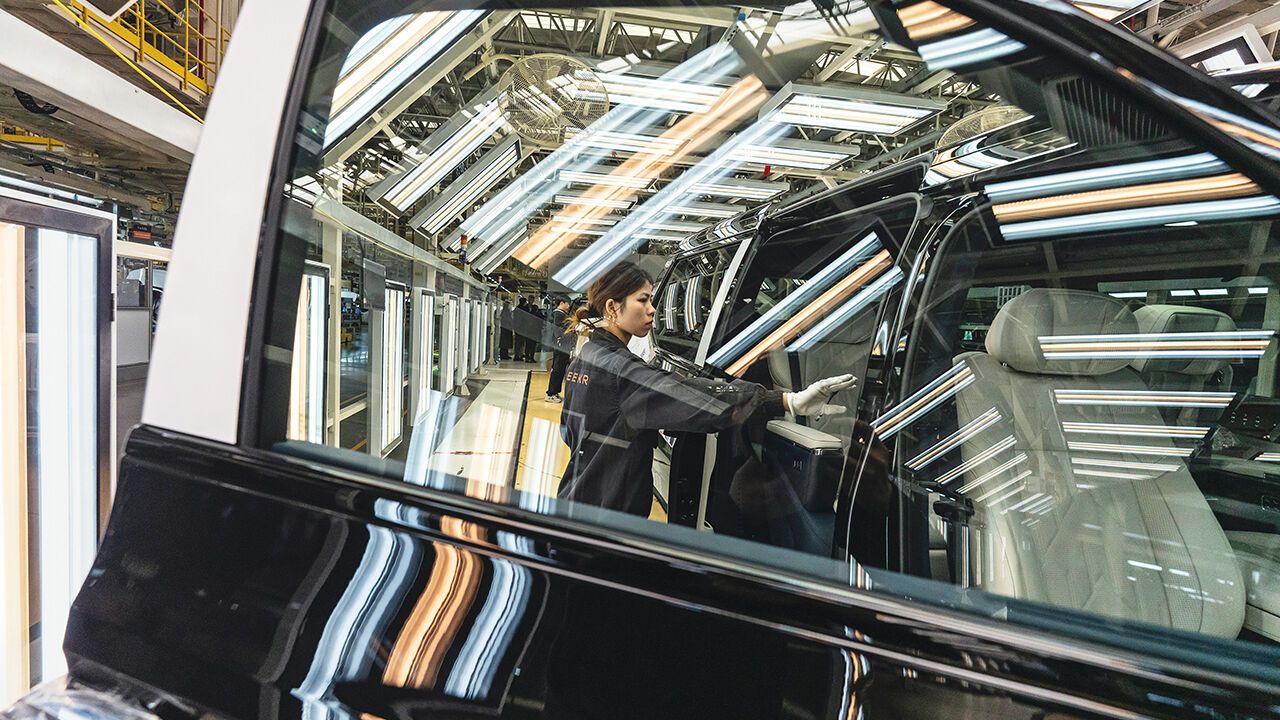Articles in this Cluster
25-08-2025
The U.S. ambassador to France, Charles Kushner, has been summoned by the French government over a trade dispute. The U.S. is also at odds with France over its stance on the Israeli-Palestinian conflict. The tensions between the two countries are running high, with both sides engaging in a war of words.
Entities: France, United States, Charles Kushner • Tone: negative • Sentiment: negative • Intent: inform
25-08-2025
The article discusses China’s economic future amid deindustrialization and the potential consequences of a shift towards service-oriented and high-tech industries. It explores the challenges and opportunities arising from the country’s efforts to transition away from traditional manufacturing and towards more advanced industries, with a focus on self-reliance and reducing dependence on foreign technologies.
Entities: China, United States, The Economist • Tone: neutral • Sentiment: negative • Intent: inform
25-08-2025
The article discusses the disagreement among economists regarding various economic issues and how they tend to have differing opinions on various topics. It highlights the complexity of the field and the challenges of making predictions.
Entities: Economists, China, Trump • Tone: neutral • Sentiment: negative • Intent: inform
25-08-2025
The Economist's finance and economics section features various articles discussing global economic issues, including the potential consequences of deficit populism, China's ability to cope with deindustrialization, and the impact of Trump's trade policies. Other topics include the green transition, complicated investing strategies, and the effects of America's AI boom on the economy. The articles analyze various economic concepts and trends, providing insights from different perspectives.
Entities: Europe, China, America, The Economist, Trump • Tone: analytical • Sentiment: neutral • Intent: inform
25-08-2025
The article discusses how America's AI boom is impacting the rest of the economy, using the example of Ashburn, Virginia, which has become a hub for data centers powering AI models. The data centers in Ashburn consume a significant amount of power, raising concerns about the strain on the electrical grid and the broader economic implications. The article suggests that the AI boom is having a squeezing effect on the rest of the economy, potentially leading to unintended consequences.
Entities: Ashburn, Virginia, Washington, DC, Dulles airport, Virginia's main electrical utility • Tone: analytical • Sentiment: neutral • Intent: inform
25-08-2025
The article discusses the unexpected leader in the green transition, challenging the common perception that it is driven by northern European countries or China. It highlights a surprising new home for the green transition, though the specific location is not mentioned in the provided content. The article touches on the rapid rollout of renewables and the surge in electric-vehicle sales in this new location, contrasting it with the typical image of green transition leaders as being smug, northern European, with coalition governments, and a culture of cycling holidays. The green transition is also linked to China due to its significant role in manufacturing equipment for renewables.
Entities: China, Europe, The New York Times, Qilai Shen, The Economist • Tone: analytical • Sentiment: neutral • Intent: inform
25-08-2025
The article discusses how countries affected by Trump's trade policies are adapting and moving on, while China benefits from the situation. The Trump administration's trade negotiations aim to reassert American primacy, but the article suggests that this approach may not be effective as other countries, particularly China, are gaining from the new trade dynamics. The White House's strategy involves dismantling the old global trade order, policed by the World Trade Organisation, to create a new one centered around America. However, the article implies that this may not yield the desired results as trade victims are finding ways to cope and China is strengthening its position.
Entities: Donald Trump, Jamieson Greer, Peter Navarro, America, China • Tone: analytical • Sentiment: neutral • Intent: analyze
25-08-2025
The article argues that California's agricultural industry, which feeds a significant portion of America, relies heavily on immigrant labor, particularly from Mexico. The authors, Robert Rivas and Shannon Douglass, contend that recent immigration enforcement actions, including ICE raids, are detrimental to the industry and will lead to higher grocery prices and food waste. They urge policymakers to find a humane and practical solution to ensure a stable farm workforce and protect farmworker families.
Entities: California, America, Mexico, United States, ICE • Tone: urgent • Sentiment: negative • Intent: persuade
